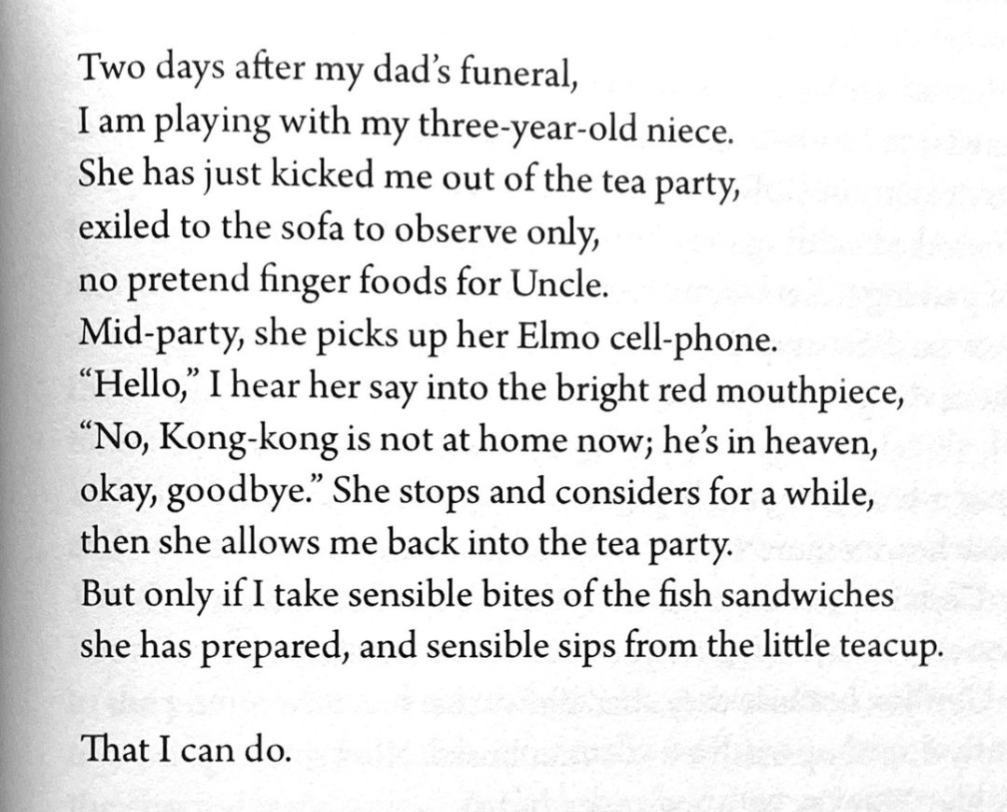Not sure what has compelled me to ask this on this specific poem, but I wonder if any of you could help me understand something about poetry in general a bit better. I like this piece. The depiction of a tiny moment of normalcy and the quiet joy that that can bring in the wake of an event that upends your world, and a child's recognition of a loss that she doesn't have experience with, seeking connection as she does so, that all works for me. What I don't get is why it would be structured as a poem rather than just a very short story.
I promise this isn't an "oh, it doesn't rhyme, it's not real poetry" thing. I'm coming to this recognising that I'm missing something and hoping to find it. I think of poetry as employing rhythm in some sense; that's a characteristic I would use it to distinguish it from prose if someone asked me to. I am, however, aware, that ditching this (as far as I can tell) is pretty common in poetry. I don't see any of it here other than that the lines get slightly longer up until the last one. So what's going on? What makes this poetry and not prose, and what does that bring to the piece?
